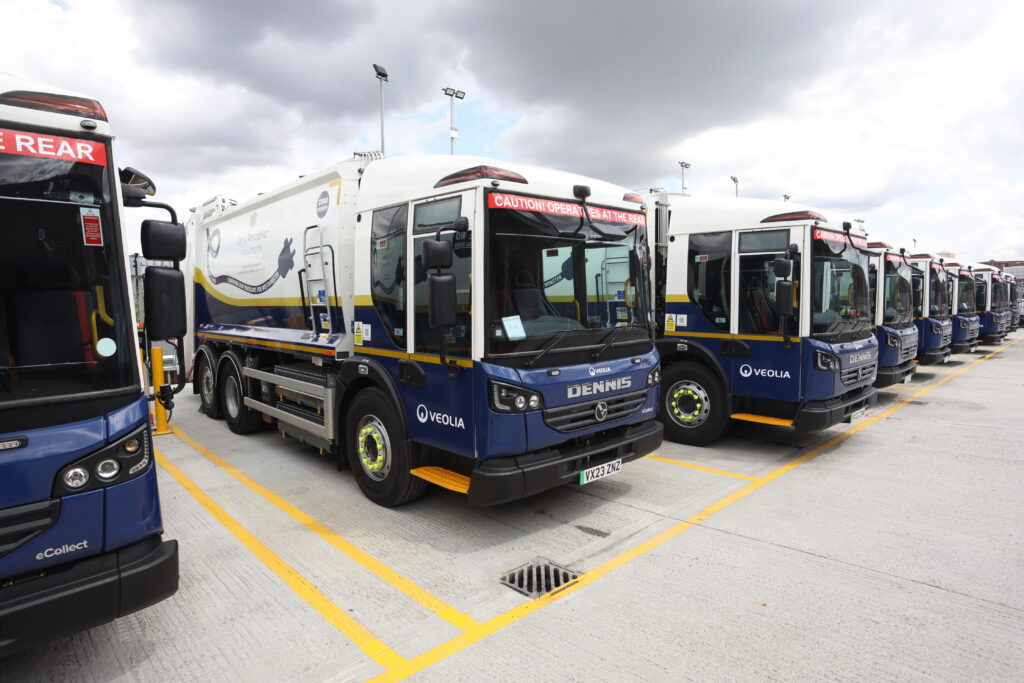The council has invested £20 million in the 45 vehicles which will be introduced in the coming weeks. Many of the new vehicles will be housed at a depot in Bermondsey and will be charged with power sourced from Veolia’s Selchp EfW plant nearby.
According to the council this move represents “the largest decarbonisation program of its kind by a UK local authority.” With an 80-strong truck fleet in total, Westminster plans to gradually replace all its vehicles, “solidifying its commitment to sustainability”.
‘Trailblazing’
Cllr Paul Dimoldenberg, cabinet member for city management and air quality, said: “By replacing diesel-powered refuse trucks with a £20m investment in UK-built electric vehicles, Westminster City Council is voting with its fleet. The trailblazing electrification will deliver an essential service that is quieter for residents, improves air quality in
central London and reduces our fleet emissions by 50 per cent, or over 2,000 tonnes of CO2 per year. This is a significant moment in the evolution of sustainable council services and we look forward to further expanding our zero-emission vehicle fleet in the future.”
Waste-powered
The council highlighted that a key element of this project is the specially designed depot at Landmann Way, near Bermondsey, which will house many of the new electric vehicles. The depot features smart charging infrastructure, ensuring the trucks are always ready to go when needed. This facility utilises waste collected from homes and businesses in Westminster, allowing the trucks to be charged using energy generated from the waste itself.
Operated by Veolia, Westminster’s fleet conducts an impressive 50 million collections each year. The transition to electric refuse trucks will make a substantial environmental impact, with each electric vehicle saving up to 89% of CO2e (carbon dioxide equivalent) compared to their diesel-powered counterparts.
Veolia played a significant role in making this initiative a reality. They worked to procure, design, and operate the new depot and charging infrastructure. The charging facility can accommodate up to 54 vehicles simultaneously, providing seamless access to power for the growing electric fleet. Smart charging technology will further enhance the efficiency of the fleet by allowing it to receive power during non-peak hours, maximizing local resources and bolstering the National Grid’s resilience.
Future Plans
The council highlights that the electrification of the waste collection fleet improves air quality and reduces carbon emissions but also sets the stage for rolling out electric vehicles in other parts of the country.












Subscribe for free